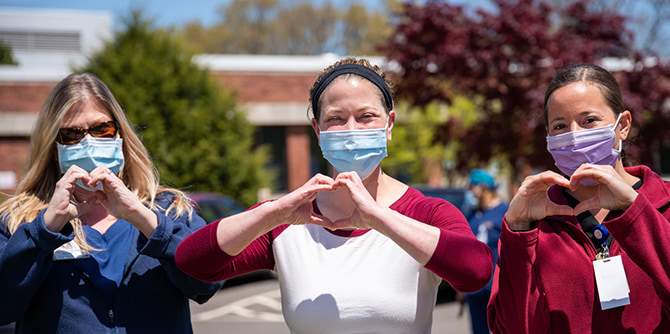
The COVID-19 crisis had a profound impact on the lives of the peoples of Israel. As the numbers of cases rose, and Israelis were ordered to stay at home, challenges escalated rapidly. Unemployment rose to unprecedented rates, parents were forced to supervise online education, and underprivileged populations found themselves in increasingly untenable circumstances.
Understanding the urgency of the situation, the Mandel Foundation responded by donating $4.8M to help Israeli society face challenges brought on by the crisis. Some $3.6M of these funds were given to a wide range of nonprofit organizations and causes in Israel, including $500K to the city of Jerusalem, while the remaining $1M was allocated to 94 vital initiatives proposed by Mandel graduates to address the crisis in diverse sectors of society. Of the 94 grantees, 8 were awarded NIS 75,000; 30 were awarded NIS 50,000; and 56 were awarded NIS 25,000.
These unique initiatives, which focused on some of society’s most pressing issues, were created to help a wide range of communities, including Jews, Arabs, Bedouin, Druze, residents of East Jerusalem, ultra-Orthodox Jews, asylum-seekers, and women without citizenship. The projects were designed to serve populations including at risk youth, children with special needs, single mothers, victims of domestic violence, needy families, the elderly, people with disabilities, and medical personnel. The initiatives focused on areas such as employment training, online learning, community resilience, and distribution of food, medication, and protective equipment. Many of the projects were developed for implementation in Israel’s periphery.
In-depth descriptions of six of these inspiring and impactful graduate initiatives can be found here:
An additional project that received support was carried out by
Dr. Michal Hemmo-Lotem, a graduate of Cohort 2 of the Mandel School for Educational Leadership and founder and CEO of Osheya. Michal’s initiative supported women healthcare workers, who were impacted by the crisis in every aspect of their lives. These women on the frontline were given assistance through support groups, emergency mentoring, and building a community.
Yoav Braver, a graduate Cohort 4 of the Mandel Youth Leadership Program and founder of the Cyber Education Center, initiated a project that was particularly relevant at a time when schools were closed. He developed online courses and a structured, guided group process to enable teens from the periphery to acquire computer skills, including programming, and to improve their problem-solving skills in a supportive environment.
Another initiative was led by
Yael Boneh Levy, a graduate of Cohort 3 of the Mandel School for Educational Leadership and founder of the Lasova Association. During the crisis, Lasova purchased food baskets, diapers, and milk substitutes for 216 families of asylum seekers and migrant workers, providing assistance until parents could once again earn a living.
The dramatic rise in unemployment during the crisis led to an acute need to assist young Bedouin in finding suitable employment.
Hend Abu Jaffer, a graduate of the Mandel Program for Local Leadership in Rahat, provided support for around 40 young Bedouin (aged 25-45) who were laid off, underemployed, or entering the job market to find appropriate jobs that would integrate them more successfully into the workforce.
Ofir Libstein, a graduate of Cohort 2 of the Mandel Program for Regional Leadership in Beer Sheva and head of the Sha'ar HaNegev Regional Council, developed an initiative to assist small and independent business owners by supporting the local business-community with peer learning, networking, local procurement, and sustainability.
An initiative by
Tyseer Atamnah, a graduate of the Mandel Program for Local Leadership in Baqa Al-Gharbiyye and founder of the Golden Age Center, created a remote system that would provide elderly people in Baqa Al-Gharbiyye with enrichment activities, relieve their loneliness, and facilitate their access to necessary services.
Batia Berkowicz, a graduate of the pilot program for the women's track of the Mandel Program for Leadership Development in the Haredi Community, initiated a project to protect ultra-Orthodox children from sexual abuse during the crisis. The project created an online workshop to train teachers on how to make direct and indirect contact with children, to identify crisis situations, and to provide critical follow-up. As part of the initiative, an advertising campaign targeting the Haredi community included contact information for receiving support.
To assist the Druze community,
Lotfy Harb, a graduate of Cohort 9 of the Mandel IDF Educational Leadership Program and founder of the nonprofit Afikim L’Atid, initiated a project called “A Computer for Every Child.” The shift from classroom learning to remote learning was particularly problematic for Druze children in poor villages, who often do not have computers at home. Lotfy’s initiative purchased computers for those who lacked them, including old computers that were refurbished by a company that employs people with special needs.
Ada Trossman, a graduate of Cohort 4 of the Mandel Senior Civil Service Program and founder of the nonprofit Isha L’Isha – Haifa Feminist Center, initiated a project to provide targeted, personalized, and immediate assistance to women at risk. Her Corona Women's Rescue Program provided assistance to women without citizen status, creating an emergency fund for food, rent, medical expenses, and children’s needs. A hotline for inquiries and emergency calls extended its hours to 24/7, call centers were set up, and information was disseminated in all the relevant languages.
The Mandel Foundation is proud of the inspiring and worthy initiatives launched by our graduates during the crisis and of the creative leadership roles that our graduates assumed at this difficult time. Although only a few of the 94 initiatives that received support from the Foundation are mentioned in this article, we are deeply gratified to know that all of them contributed greatly to their communities and to Israel as a whole.
Beyond the grants awarded to graduate initiatives, the Mandel Graduate Unit awarded a total of NIS 1M to more than 100 graduates of the programs of the Mandel Foundation–Israel, in order to provide personal assistance to graduates who found themselves in financial difficulty due to the crisis.
